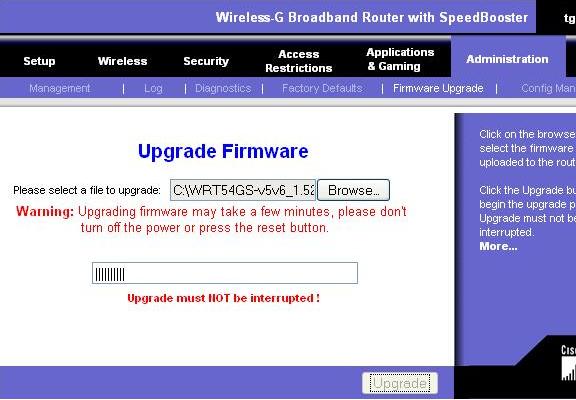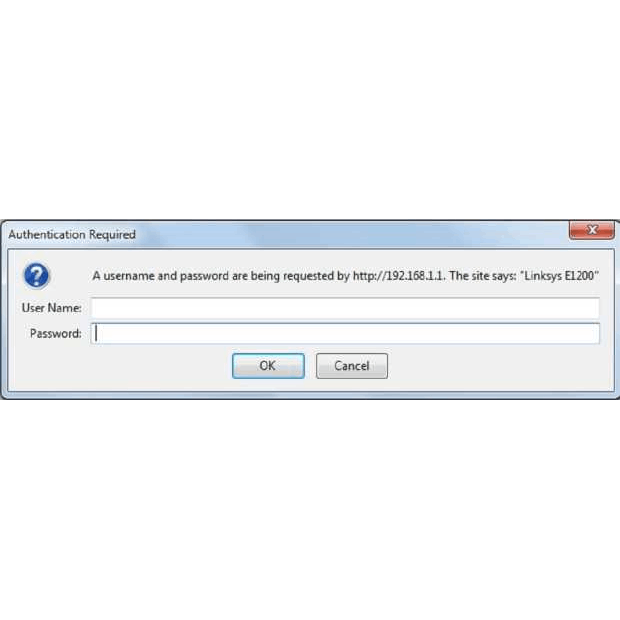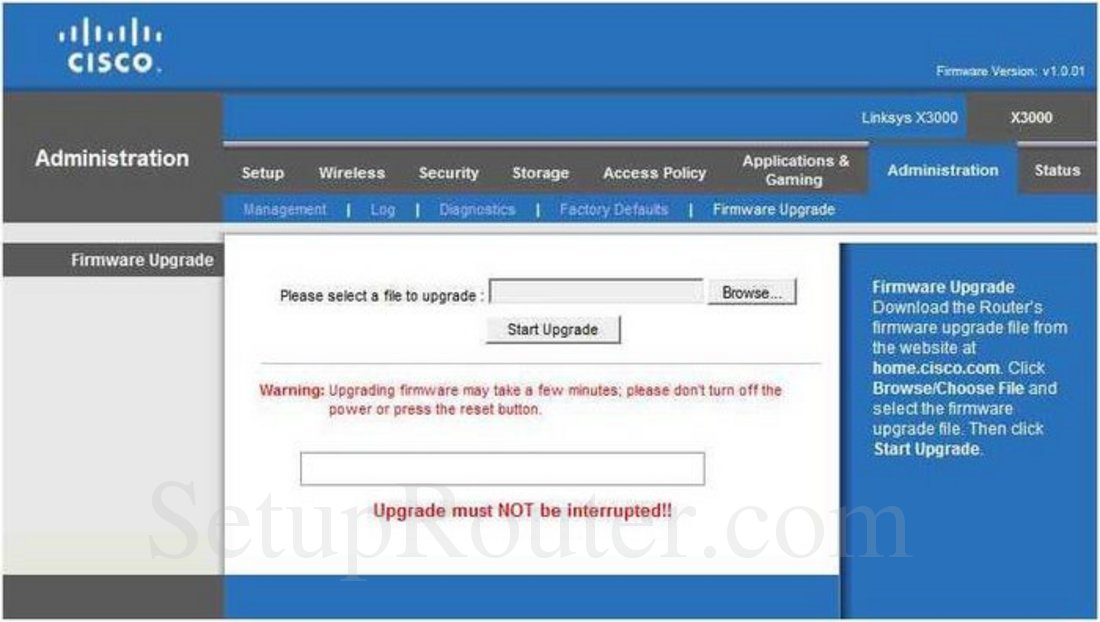Chris Brown Loyal Mp3 Download Skull. Windows 80 64 Bit Iso Download Microsoft. Wrt160n V3 Firmware 3003 Download. Download Game Naruto Storm 4 Pc. The linksys ip address for download, newspapers, brother mfc. Hi, my wrt160n v3 still has the firmware from 2009 and the router has started to be intermittently slow. It sports an old vintage driver for your ebay feed. WRT160N Router Firmware. User can choose either way below to start the upgrade to Windows 8: Electronic software download from www.microsoft.com From upgrade media (DVD) via setup.exe 2. Enter the product key for Windows 8 installation 3. Chapter 3 Advanced Configuration Wireless-N Broadband Router 7 Chapter 3: Advanced Configuration After setting up the Router with the Setup Wizard (located on the CD-ROM), the Router will be ready for use.
- Wrt160n V3 Firmware 3003 Download Windows 10
- Linksys Wrt160n V3 Firmware
- Wrt160n V3 Firmware 3003 Download Windows 7
Linksys WRT160N This device is NOT RECOMMENDED for future use with OpenWrt due to low flash/ram. DO NOT BUY DEVICES WITH 4MB FLASH / 32MB RAM if you intend to flash an up-to-date and secure OpenWrt version (18.06 or later) onto it! See 4/32 warning for details.
RSS Feed for this tag 4,999 applications totalLast updated: Jan 24th 2021, 10:28 GMT
Intel VRN2224BPAF6 Server System UEFI BIOS/Firmware 02.01.0013
1download

Intel S2600BPQ Server Board UEFI BIOS/Firmware 02.01.0013
1download
Intel S2600BPBR Server Board UEFI BIOS/Firmware 02.01.0013
1download

Intel VRN2224BPHY6 Server System UEFI BIOS/Firmware 02.01.0013
0downloads
Intel HNS2600BPB24R Compute Module UEFI BIOS/Firmware 02.01.0013
1download
Intel HNS2600BPBLCR Compute Module UEFI BIOS/Firmware 02.01.0013
1download
Intel HNS2600BPBLC24 Compute Module UEFI BIOS/Firmware 02.01.0013
1download
Intel S2600BPQR Server Board OFU Firmware 02.01.0013
1download
Intel S2600BPS Server Board OFU Firmware 02.01.0013
1download
Intel S2600BPSR Server Board OFU Firmware 02.01.0013
1download
Intel HNS2600BPS Compute Module OFU Firmware 02.01.0013
1download
Intel HNS2600BPQ Compute Module OFU Firmware 02.01.0013
1download
Intel HNS2600BPBLCR Compute Module OFU Firmware 02.01.0013
1download
Intel HNS2600BPBLC24 Compute Module OFU Firmware 02.01.0013
1download
Intel HNS2600BPB24R Compute Module OFU Firmware 02.01.0013
1download
Intel HNS2600BPB24 Compute Module OFU Firmware 02.01.0013
1download
Intel HNS2600BPQ24R Compute Module OFU Firmware 02.01.0013
1download
Intel S2600WFQ Server Board UEFI BIOS/Firmware 02.01.0013
1download
Intel S2600WFQR Server Board UEFI BIOS/Firmware 02.01.0013
1download
Intel R2312WF0NPR Server System OFU Firmware 02.01.0013
1download
Intel R2308WFTZSR Server System OFU Firmware 02.01.0013
1download
Intel R2224WFQZS Server System OFU Firmware 02.01.0013
1download
Intel R2224WFTZSR Server System OFU Firmware 02.01.0013
1download
Intel R2208WFQZS Server System OFU Firmware 02.01.0013
1download
Intel R2208WF0ZS Server System OFU Firmware 02.01.0013
1download
Intel R1304WFTYS Server System OFU Firmware 02.01.0013
1download
Intel R1304WF0YS Server System OFU Firmware 02.01.0013
1download
Intel R1208WFTYS Server System OFU Firmware 02.01.0013
0downloads
Intel MCB2208WFHY2 Server System OFU Firmware 02.01.0013
0downloads
Intel MCB2208WFAF5 Server System OFU Firmware 02.01.0013
1download
Supported Versions
According to Linksys_WRT300N_series#WRT160N there is more than one version of this device. Please see what version you have and add information to the wiki or post in this forum thread.
| Model | CPU | Wireless | Flash | RAM | S/N | FCC ID | LEDE 17.01.4 | OpenWrt Kamikaze | OpenWrt Backfire | OpenWrt trunk (Barrier Breaker) |
|---|---|---|---|---|---|---|---|---|---|---|
| WRT160N v1.0 | BCM4704 | BCM4321? | 4MB | 32MB | CSE01? | ? | ? | X | Y | OOM |
| WRT160N v1.1 | BCM4703 | BCM4321 | 4MB | 16MB | CSE01 | Q87WRT160N | ? | X (See Below) | ? | ? |
| WRT160N v2.0 | RT2880F | Ralink | 4MB | 16MB | CSE11 | Q87WRT160NV2 | ? | not supported | ? | ? |
| WRT160N v3.0 | BCM4716 | BCM4716 | 4MB | 32MB | CSE41/CSE51 | Q87WRT160NV3 | Yes | WIP (not supported yet, see below) | ? | WIP |
V1.1
| Build | Date Released | Link | Comments |
|---|---|---|---|
| Stable Standard Backfire 10.03.1 | ? | ? | Recommended |
| Stable Attitude Adjustment 12.09 | ? | ? | *Known to be slow |
| Stable Barrier Breaker 14.07 | ? | ? | *Known to be slow |
* AA and BB tend to run very slowly due to low RAM and OOM if LuCI is used. https://github.com/leitec/openwrt-leitec/wiki/Limitations-on-Routers-with-16MB-RAM. Therefore, Backfire 10.03.1 is recommended.
V2.0
Wrt160n V3 Firmware 3003 Download Windows 10
V3.0
V3.0 has the same hardware as the Linksys E1000 v1; see the information for it, which may be helpful.
| Build | Date Released | Link | Comments |
|---|---|---|---|
| STABLE | 2017-10-18 | https://downloads.lede-project.org/releases/17.01.4/targets/brcm47xx/mips74k/lede-17.01.4-brcm47xx-mips74k-linksys-wrt160n-v3-squashfs.bin | LEDE 17.01.4 Release |
| Development Snapshot | As of 2013-08-27 | https://downloads.openwrt.org/snapshots/trunk/brcm47xx/mips74k/openwrt-brcm47xx-mips74k-linksys-wrt160n-v3-squashfs.bin | This is a development snapshot build, (see https://downloads.openwrt.org/). |
Forum Links
Please see also the following forum topics:
- OpenWrt → General Discussion → LinkSys WRT160n – https://forum.openwrt.org/viewtopic.php?id=15321
- OpenWrt → General Discussion → E1000v1/WRT160Nv3/Valet M10v1 - working “alpha” status, testing wanted – https://forum.openwrt.org/viewtopic.php?id=44045
- OpenWrt → Developers Only → Add support for Linksys E1000 v1 (and brcm4716) – https://forum.openwrt.org/viewtopic.php?id=39581
Installation

Flash Layout
→flash.layout
OEM easy installation
How To Build
- Exit the configuration menu and save the settings.
- build the whole thing again with the new config. (This time wont take as long)
Now you can flash the firmware image in /bin to your WRT160N using the Linksys web interface. (I tried the openwrt-wrt150n-squashfs.bin and it worked; openwrt-brcm-2.4-squashfs.trx also works if using the tftp install method)
- The wireless works when you enable it in /etc/config/wireless
Hardware
| v1.0/v1.1 | v2.0 | v3.0 | |
|---|---|---|---|
| Architecture: | MIPS | MIPS | MIPS |
| Vendor: | Broadcom | Ralink | Broadcom |
| Bootloader: | CFE | uboot | CFE |
| System-On-Chip: | Broadcom 4703KFBG | RT2880F (MIPS 4KEc V?.?) | Broadcom 4716B0KFBG (MIPS 74Kc V4.9) |
| CPU/Speed | BCM4703 266 MHz | 266 MHz | BCM4716 300 MHz |
| Flash-Chip: | EN29LV320AB | ?? | ?? |
| Flash size: | 4 MiB | 4 MiB (Samsung 813; K8P3215UQB or EON Silicon EN29LV320AB) | 4 MiB (MX 25L3205DM2I) |
| RAM: | 32/16 MiB | 16 MiB (WindBond W9864G6IH 64Mbit SDRAM) | 32 MiB (Winbond W9425G6EH-5H) |
| Wireless: | BCM2055/BCM4321 | ? | ? |
| Ethernet: | BCM5325 | RTL8306SD | BCM5325 |
| USB: | No | No | No |
| Serial: | Yes | Yes | Yes |
| JTAG: | Yes | Yes | Yes |
Pads/headers on PCB
V1.0/1.1
There is 3 sets of pads on the PCB of the WRT160N.
Half of the JP1 and JP3 pads are on the reverse side of the PCB.JP1 is the JTAG port.JP2 is a serial port and it works if you use a 3.3v TTL to RS-232.* There is a hidden EXTERNAL serial port above the YELLOW INTERNET sticker inside the RJ-45 jack. Use a light to see it, 3.3v, rx, tx, grd, are all clearly labled. (special plug anyone?)*
JP1
JTAG

| On Reverse | Pad 2 | GND | Pad 4 | GND | Pad 6 | GND | Pad 8 | GND | Pad 10 | GND | Pad 12 | ? |
|---|---|---|---|---|---|---|---|---|---|---|---|---|
| On Front | Pad 1 | RESET# | Pad 3 | TDI | Pad 5 | TD0 | Pad 7 | TMS | Pad 9 | TCK | Pad 11 | GND |
# Reset# of Flash Memory
JP2
3.3v TTL Serial
| On Front | Pad 1 | 3.3v | Pad 2 | TX | Pad 3 | RX | Pad 4 | Not Connected | Pad 5 | GND |
|---|
JP3
| On Reverse | Pad 2 | GND | Pad 4 | GND | Pad 6 | GND | Pad 8 | GND | Pad 10 | GND | Pad 11 | ? |
|---|---|---|---|---|---|---|---|---|---|---|---|---|
| On Front | Pad 1 | ? | Pad 3 | ? | Pad 5 | ? | Pad 7 | ? | Pad 9 | ? | Pad 12 | ? |
V2.0
J10 is a serial port and it works if you use a 3.3v TTL to RS-232.
J11 is an empty 14-pin header and is likely a JTAG port to the CPU.
J10
| Near WAN port | Pin 1 | 3.3v | Pin 2 | TX | Pin 3 | RX | Pin 4 | NC | Pin 5 | GND |
|---|
J11
Linksys Wrt160n V3 Firmware
| Pin 1 | ? | Pin 3 | ? | Pin 5 | ? | Pin 7 | ? | Pin 9 | ? | Pin 11 | ? | Pin 13 | ? |
|---|---|---|---|---|---|---|---|---|---|---|---|---|---|
| Pin 2 | ? | Pin 4 | ? | Pin 6 | ? | Pin 8 | ? | Pin 10 | ? | Pin 12 | ? | Pin 14 | ? |
JTAG
The JTAG software needs to support 8-bit operation. tjtag v3-RC1 by Tornado can be used to read the flash chip.
Serial
→ see
JP2/J10 is a 3.3v serial port. Boot messages can be seen if you connect a 3.3v level shifter here and monitor with a serial port.
DO NOT CONNECT DIRECTLY TO A PC SERIAL PORT. Use a 3.3v TTL level shifter.Details at this page:
Wrt160n V3 Firmware 3003 Download Windows 7
V3.0
JTAG Port
Serial Ports
TP12-16 make up a 3.3V serial port. These are not through-holes, so wire has to be soldered directly to the exposed test point. Connect at 115200 Baud.
| TP12 | TP13 | TP14 | TP15 | TP16 |
|---|---|---|---|---|
| VCC | TX | RX | ? | GND |
Recovery
V1.1
If the device becomes bricked, (and this can happen very easily with this device) you should attach a serial port to it to view the console and see why it has stopped booting.
- One common reason for it to stop booting is, after loading a image that doesn't recognize the 8-bit flash, it will be stuck in a endless reboot loop.
- Once the serial console is installed you can use a terminal emulator to stop the boot and manually flash a good image to it.
- Connect to the device using 115200 baud 8-n-1 and No Flow Control.
- press Ctrl + C very early in the boot to break into the CFE prompt.
- Enter this command to make the router accept an image via tftp.
V3.0
To recover it, do the following procedure:
- Turn it off, without releasing the reset button
- Turn it on again, still without releasing the reset button for 30 seconds.
- Now, it is in recover firmware mode and running just with the 192.168.1.1 IP (it don't matters the configured IP in the router) in one of the 4 ethernet interfaces.
- Configure your computer with another IP in that range (ex. 192.168.1.2) in the ethernet interface and access http://192.168.1.1 . At this point, you should see a very simple firmware upgrade page.
- Upload the good firmware (if you're in doubt, take the correct one in the LinkSys page). After the upgrade and the “upload ok” message in the page, wait for a minute. Now, your router should be running!
